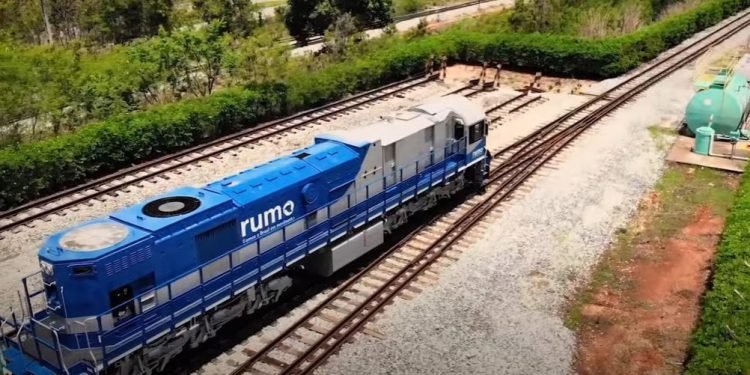Brazil’s rail freight giant Rumo announced a significant investment of R$600 million (approximately $113 million USD) towards bolstering the Paulista rail network [Railway Gazette]. This move highlights the growing focus on rail cargo as a more sustainable and efficient alternative for transporting goods across vast distances.
The Paulista network, spanning the southeast region of Brazil, is a crucial artery for transporting agricultural products, manufactured goods, and industrial materials. Rumo’s investment will target infrastructure upgrades, including track improvements, signaling system enhancements, and the expansion of terminals.
“This investment reinforces Rumo’s commitment to the development of the Paulista network,” declared a Rumo spokesperson. “By improving infrastructure and efficiency, we aim to increase our operational capacity and meet the growing demand for sustainable freight solutions.”
The emphasis on sustainability is a key driver behind Rumo’s decision. Rail transport boasts a significantly lower carbon footprint compared to road freight, making it a more environmentally friendly option for businesses looking to reduce their ecological impact.
Analysts believe Rumo’s investment could have a ripple effect on the Brazilian economy. “An improved Paulista network will not only benefit Rumo, but also various industries that rely on efficient and reliable freight transportation,” explained a logistics expert. “This could potentially lead to a more competitive and sustainable supply chain across the region.”
However, challenges remain. Upgrading aging rail infrastructure in Brazil requires significant resources and time. Additionally, competition from established road freight companies necessitates that rail cargo remains cost-effective to attract businesses.
Despite the hurdles, Rumo’s investment signifies a positive step towards a more robust and sustainable rail freight network in Brazil. As the company modernizes the Paulista network, it paves the way for a greener future for the nation’s transportation sector.























